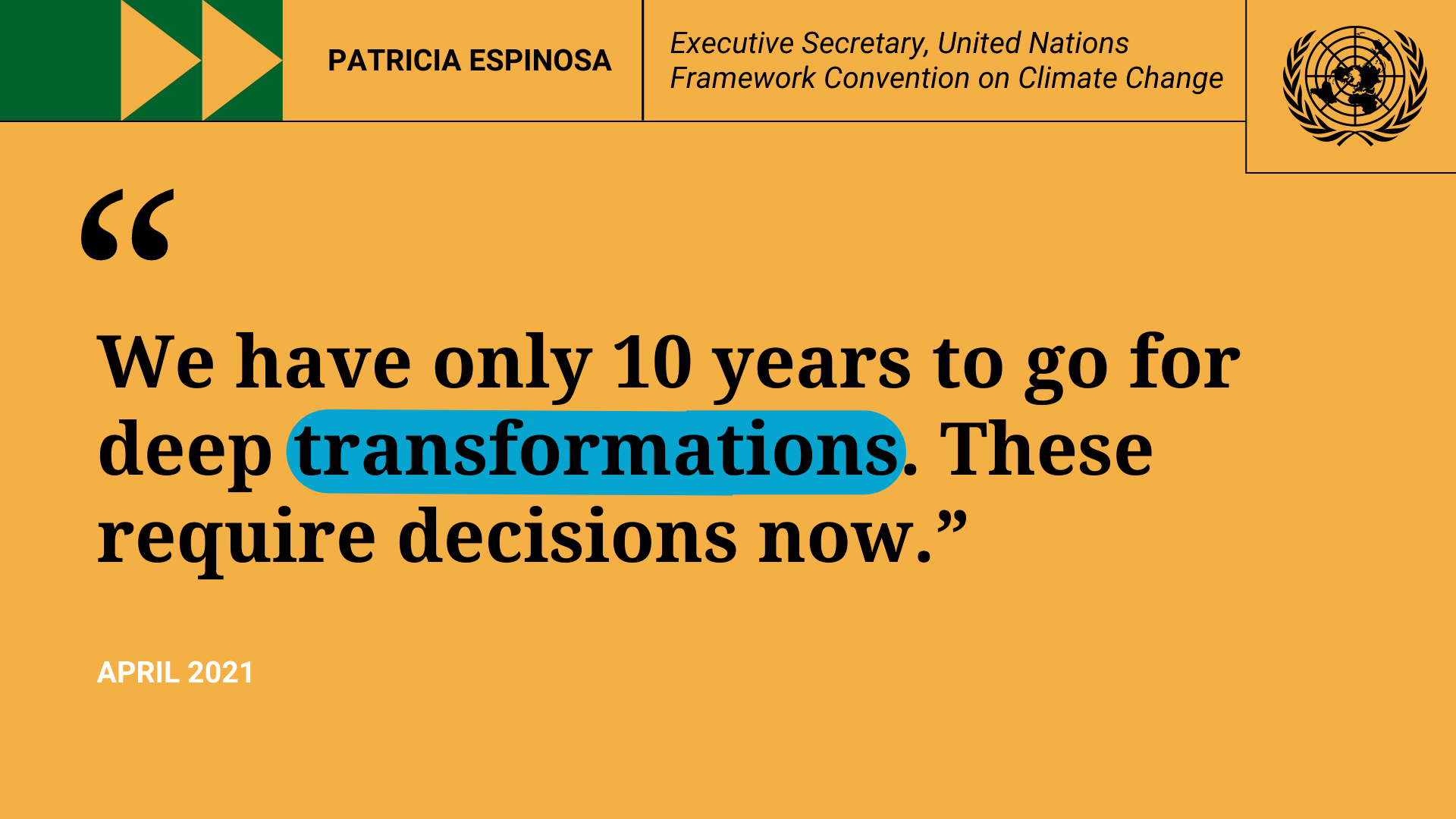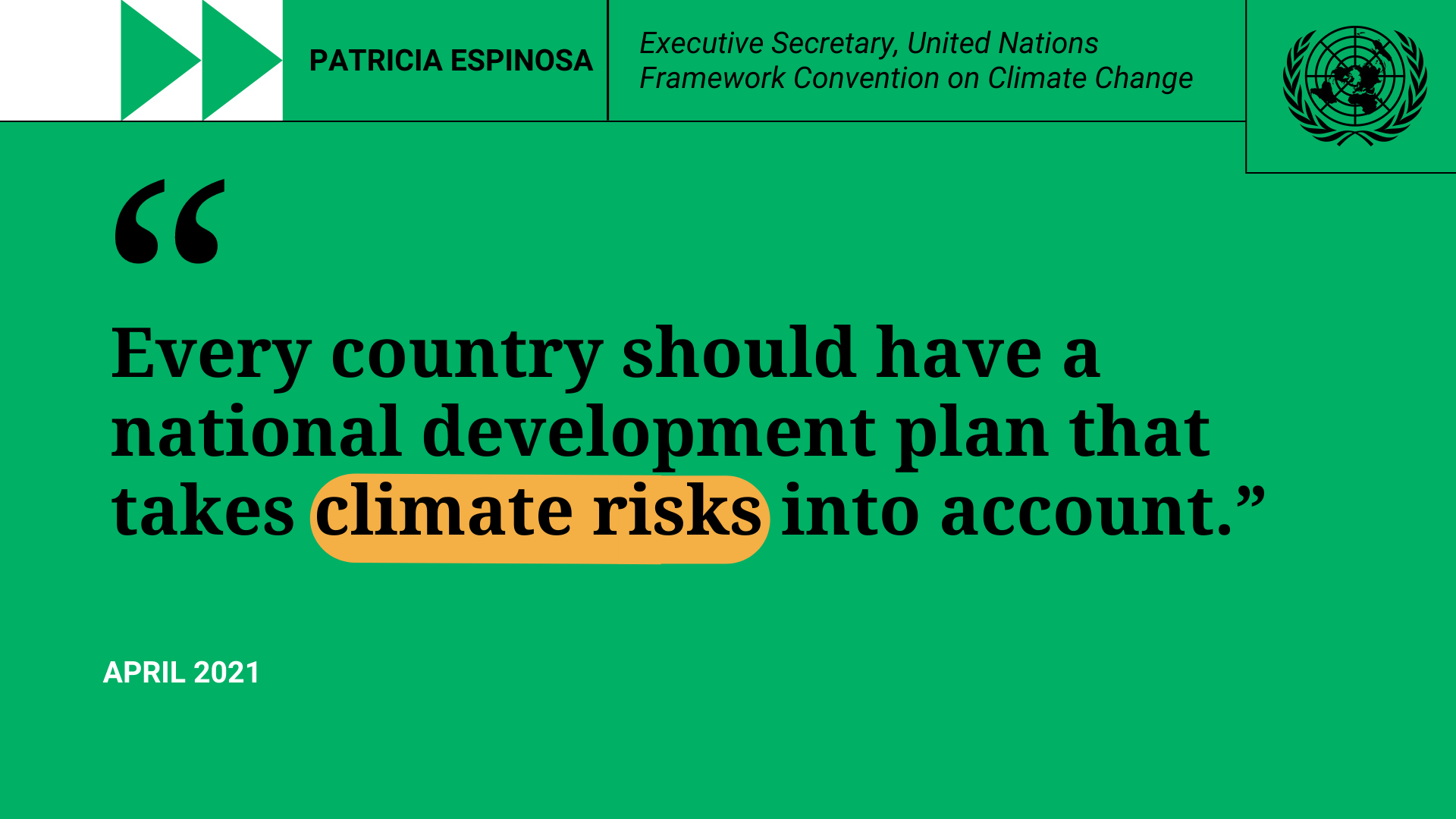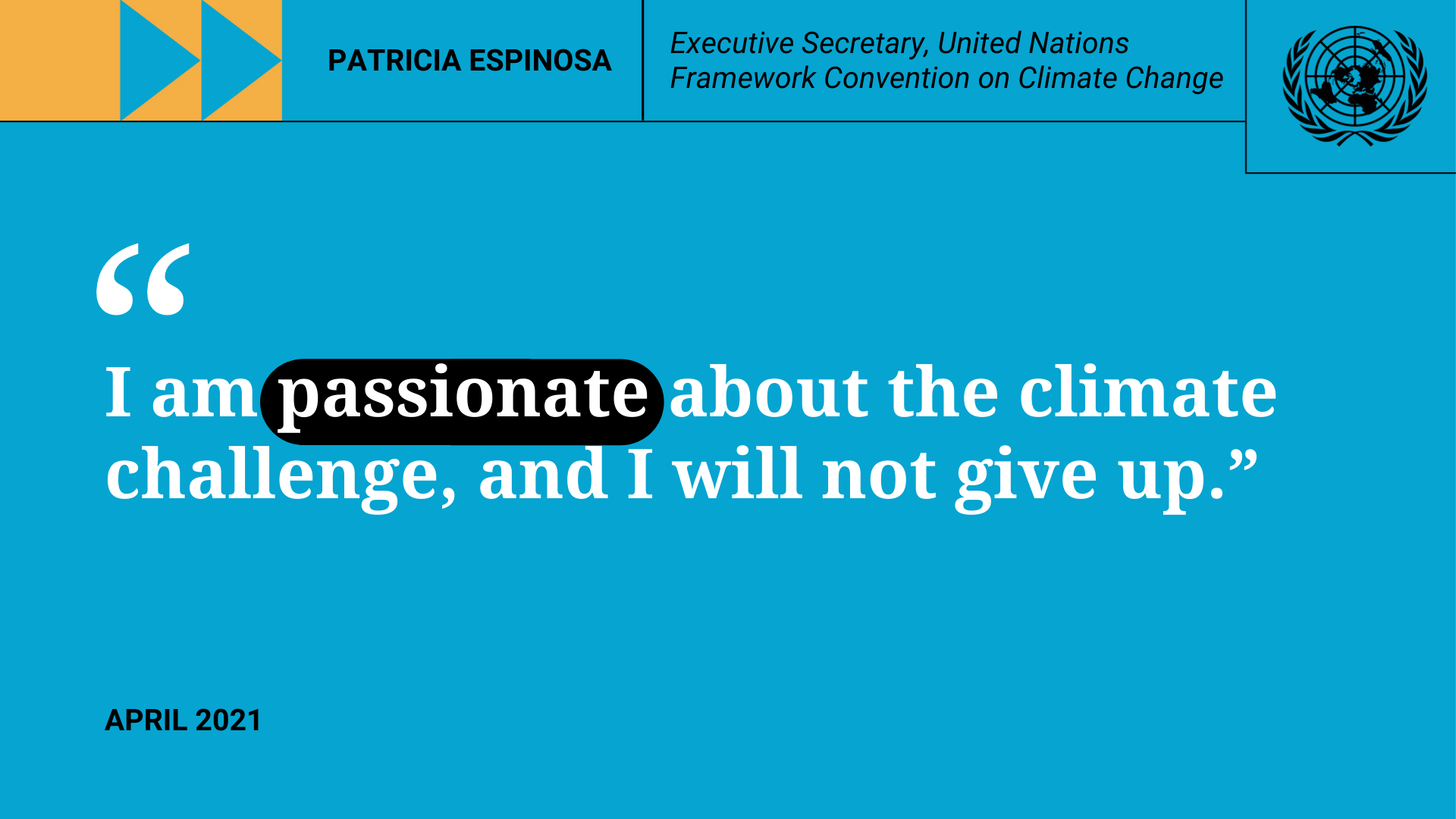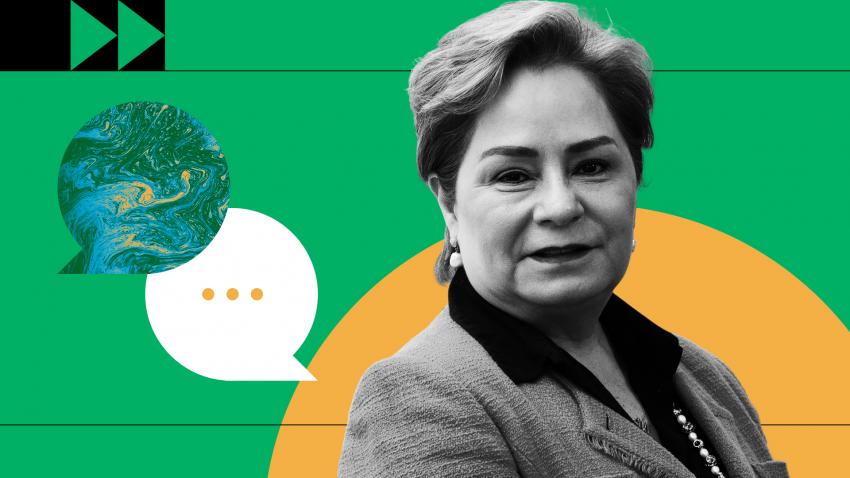Patricia Espinosa is the Executive Secretary of the United Nations Framework Convention on Climate Change (UNFCCC), the foundational 1994 international agreement on climate action most recently elaborated in the 2015 Paris Agreement. In a make-or-break year for climate action, Espinosa reflects on the climate emergency, urging a unity of purpose. Since climate knows no boundaries, bold action is in the best interest of everyone.
Where are we on climate action right now?
Unfortunately, we are in a climate emergency. We do have the Paris Agreement, which gives us guidance on how to get out of this emergency. But the recent report on the Nationally Determine Contributions released just a few weeks ago shows that we are nowhere near the Paris Agreement goal of 1.5 degrees by the end of the century. The data take us to less than a 1 per cent reduction in emissions by 2030. Science is telling us that reduction needs to be 45 per cent.
We have only 10 years to go for deep transformations. These require decisions now. We’re talking about energy transition. Infrastructure. A change in mobility. So it is a really worrying situation.
Is committing to net-zero emissions by 2050 an important framework to mobilize action?
Yes, but we must not go into a situation where governments or businesses or any other organization commits to net zero by 2050 and then thinks okay, I have 30 years to go. 2050 is important, but by 2030, we need a 45 per cent reduction in emissions. The two goals have to be seen together.
We have seen recently an increase in the number of governments, cities, companies and investors committing to mid-century net-zero emissions goals. We’re still having a problem in seeing those commitments reflected in immediate plans, however, like the Nationally Determined Contributions under the Paris Agreement. How are they going to get to those net zero goals?
Is there room for optimism?
It is difficult to talk about advancements if we look at the figures on emissions. Yet we need to recognize some positive signs. We’re seeing encouraging efforts in the expansion of renewable energy. Electric cars are no longer a novelty product for car makers but central to their long-term plans. Governments are willing to build back better and invest in climate solutions while recovering from the pandemic.
But this is not yet enough. We need to accelerate and take radical, very courageous decisions. The climate emergency can only be solved with ambition, determination and political will. That’s what we need to see.
What would success look like at the upcoming Glasgow Climate Conference, COP26?
There are four big elements. The first relates to the promises that have been made in the past. Those must be honored and completed, especially the pledge by developed countries to mobilize $100 billion annually to support developing countries with climate change. This obligation is very important to build the trust necessary to emerge from the conference as an international community with the common goal of making the Paris Agreement a reality.
Second, we need to wrap up negotiations on the Paris Agreement and fully implement it. We have been negotiating the operating guidelines for five years. We don’t have any more time for that. Important issues need to be resolved.
Third, we need to raise ambition in mitigation, but also in adaptation and finance as the three big pillars of the climate change regime. Fourth, we must leave no voice or solution behind. Everyone has a role to play. Everyone must be involved. Climate action has to respond to the expectations of our societies.

One outstanding issue has been on carbon markets, under Article 6 of the Paris Agreement. Explain where we are on this issue.
Carbon markets are an instrument to drive investments in climate action especially in developing countries. The negotiations are really around how we transition from the previous scheme under the Kyoto Protocol, the Clean Development Mechanism, to a new system that has clear rules and would send important signals to the market. So that, for example, private companies can engage in carbon markets and offset emissions that they cannot avoid, and in this way, provide some resources to developing countries.
We need to find a balance between the positions of different parties. As one example of an issue that is still contentious, some credits were issued under the Clean Development Mechanism. To obtain these credits, developing countries put forward projects that were approved by a very strict process. But then the credits were not bought. So if we go to a new system under Article 6, what will happen with those credits?
There we have different, extreme positions. The countries that still have the credits of course want them to transition to a new market mechanism. Other countries think that if we bring those into the new mechanism it will provoke a disruption. We have to find a balance where we acknowledge that those credits were done under an agreed UN process, but at the same time, we have learned from that experience and will not make the same mistakes. We can build a very good and robust market mechanism while acknowledging these political realities.
If we want, we can discuss an issue like this forever. But that should not be possible. In my view, we should include a provision for any new market mechanism to be reviewed and improved over time. We will learn from experience.
Why is progress still so far behind on climate adaptation?
For a long time, adaptation was seen as an issue relevant for developing countries only, and especially vulnerable developing countries, where extreme weather events were taking a really big toll economies and societies. Now we see extreme weather events happening everywhere in the world, every day. That should be an incentive for people to really understand that building adaption and resilience everywhere is in the interest of all.
We always say climate change is a threat multiplier. So wherever you have a drought or a sudden flood or a snowstorm or whatever, that creates a situation of vulnerability that can lead to instability and conflict. Migration from Africa to Europe just a couple of years ago provoked a very critical situation with a demonstrated link to climate change.
We need financial resources so that countries are prepared. We want people to have opportunities in their own countries. We don’t want people to migrate because they are forced to migrate. If they migrate because they want to do so, that’s a choice. But if they want to stay at home but it’s literally impossible, then we are going to have a problem. These are the kinds of reflections that I hope we will be able to embed in broader discussions on the major risks of climate change and how we can address them.
Recovery plans for COVID-19 are above $15 trillion, yet the $100 billion climate finance pledge to developing countries remains unfulfilled. How do we gain traction on climate finance?
Developed countries have a big responsibility. This year, we need to see the G7 summit and the G20 make really clear commitments that give the message that now, finally, the leaders of the world are determined to make the Paris Agreement a reality. That implies that the rich countries will comply with their obligations to support developing countries, and not only for climate change, but also for the Sustainable Development Goals and all development challenges.
Rich countries should see that this is in their own self-interest. The European Union has made an incredible Green New Deal, for example. But even assuming that they have the best implementation of that Green New Deal, if the transformations that are required globally do not take place in other parts of the world, the effort in Europe will be compromised.

You have spent a career in government. Beyond the issue of resources, why is it so difficult for so many governments to really gear up action on climate?
Part of the problem is the nature of climate change. It is an issue that has to do with all areas of society, and all areas of government. Normally you have the ministry of environment, the ministry of finance, and so on, and everyone has different roles. Understanding that climate change risks need to be taken into account in the plans and programmes and policies of each and every sector is very difficult.
One of the really big challenges has been to get finance ministries to understand that climate change has a very direct impact on the financial sector, because whenever a disaster happens, there is an enormous loss of wealth and of course lives and livelihoods. It has taken some time, but now we have within the World Bank and the International Monetary Fund a coalition of ministers of finance for climate change. That is a good development. But it has only happened now, when the UNFCCC is over 25 years old and the Paris Agreement was adopted five years ago.
People are also used to seeing climate change as very far away, and as really more a programme for the small island states or the very poor countries, because wealthier countries have the capacity to confront extreme weather events. That is not any more the case. Every country should have a national development plan that takes climate risks into account.
What can unlock change in governments?
Leadership at the highest political level. There are very few examples, but they do exist, of countries where the offices of the prime minister or the president have been leading the work on climate change. This is absolutely needed to take initiatives and give guidance.
Science has always driven understanding of climate change. What can we learn from the prominent role of science in the response to COVID-19?
Science has been such an incredible force to allow us to have some hope to overcome the pandemic. If we were to create this unity of purpose on science and innovation on climate change, I think that would be a very important step forward. We could learn a lot about science as a resource that should serve the well-being of human kind.
How does gender intersect with climate action?
Climate change or any other challenge of humanity cannot be addressed if we leave half of the population of the world behind. Women are often the key providers of food, water and energy, and at the same time, they bear the brunt of the climate crisis. They are critical to crafting climate solutions, but are often marginalized from climate leadership, whether at the grass-roots, regional or national levels.
We must ensure that women are fully empowered to participate, to contribute and to lead very strong climate action all over the world. One particular area I would like to mention is women in science, who can contribute to looking for solutions and very exciting innovations.

What do you say to youth who are concerned about their future?
First, youth in the last two years have had an important role in making their leaders take the climate issue seriously. At the same time, I would say to youth that they should not despair. They can contribute to shaping the future world, exactly as we have done in an older generation. They have this opportunity, this possibility and responsibility as well.
And they will be taking the decisions sooner than they can even imagine, so they need to prepare themselves for that. They need to have the skills to keep their minds open, to understand that the world is changing permanently, and at the same time, to maintain the capacity to come up with new and better solutions.
Why are you a climate actor?
All my life I have been a civil servant – I had a 35 year career in the Mexican foreign service. And a big part of that I spent in the multilateral field. There I experienced this incredibly enriching situation where you are in close contact with realities around the world literally every day. You realize how different the perspectives are, and yet how much you can learn from all of them. You also realize how even if sometimes it is not fully acknowledged or known by the general public, an incredible amount of work takes place and makes a difference in the lives of people every day.
At this stage of my life, having concluded a good and very gratifying career with my country, I feel honored and privileged to continue contributing with my experience, with my skills in this enormous challenge for humanity.
I am passionate about the climate challenge, and I will not give up. One thing we cannot do is give up.




